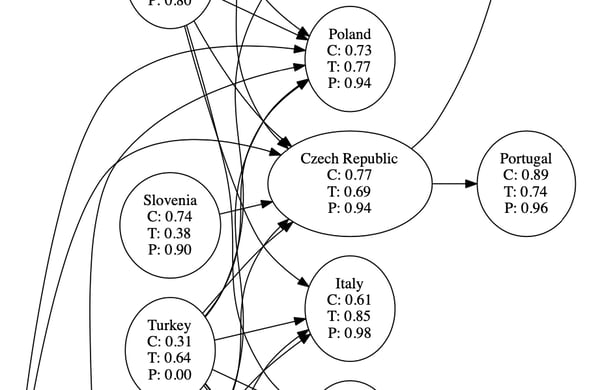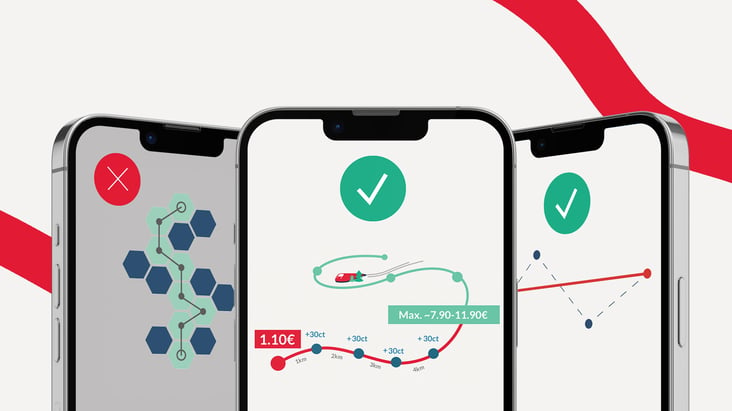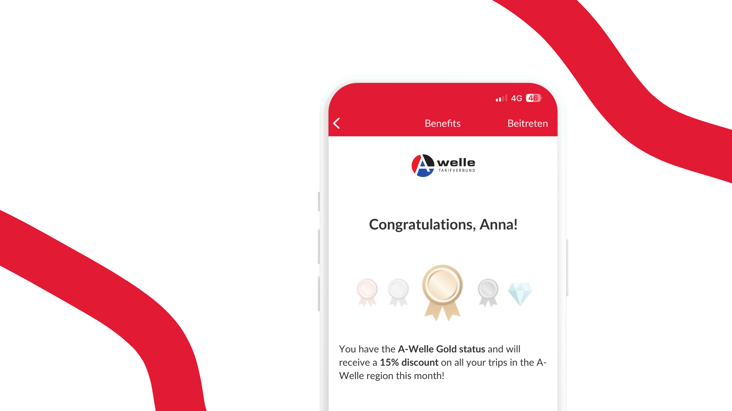
Early last year we realised that we needed to hire more engineers if we were going to accomplish our mission of simplifying sustainable mobility. Growing success means a growing company, and a growing engineering team. As we make headway in other parts of Europe, it is important to align our development costs with the local market. This is why we decided to open an engineering office in Lisbon. While the Portuguese capital is a great fit for FAIRTIQ, it might not be the right choice for companies whose criteria and situation differ from ours. In this article, I explain the process that led us to choose Lisbon as the site of our new engineering office. Sightseeing tips not included!
Our needs
When developing its software, FAIRTIQ requires alot of specific knowledge about the public transport sector, such as the tariff models that are in use and the ticket inspection process. In the past, we worked with remote freelancers but found it extremely difficult to get across to them what they actually had to do – not only technically but also how their work feeds in to the company's success. I will not go into the reasons here but suffice to say, we realised early on that our communication had to be as seamless as possible if we were to build the required knowledge, understanding of the business and product culture. We also had to have engineers who would engage with the product and the company and be proud to build FAIRTIQ and help millions in their daily lives.
Having a colocated team of FAIRTIQ employees somewhere in Europe seemed to address all these concerns. Colocated to facilitate communication, social events and coffee break discussions. FAIRTIQ employees to make them part of the story and the successes, and to offer them the same career opportunities. Somewhere in Europe to facilitate communication with the Swiss office: same time zone, ease of travel between the two sites.
A data-driven approach
With so many great places in Europe, why did we pick Lisbon, a city that is not exactly famed for being low-cost? At FAIRTIQ we try to be data-driven as much as we can. So, we applied this principle to the location search as well. We first established our criteria and their relative importance. These included wages, how much we like to spend time in the given city, its university rankings, transport links to and from Switzerland and the start-up culture, to name but only a few. Then we rated 31 European countries based on these criteria. Some of the ratings like political stability are objective, whereas others, such as how much we like the place, are clearly more subjective.

From the individual criteria and for each country we computed three score metrics: cost (C), place (P) and talents (T). All three are weighted equally and form the basis of a global country score, which allows us to rank the countries. Our aim was to take the top three or four. However, we found there was not a great deal of difference between the 3rd and 9th places. We observed a significant drop only from the 10th place down. This left us with a shortlist of nine. We also made a ‘better go there’ graph (see above) just to make sure we did not leave anything out. If we were thinking of choosing country A, it made more sense to go for the next one down, i.e. country B, as it scored higher than A in all three metrics. I should point out that the ranking is based on our own criteria and weighting. Another company may produce a completely different graph.
And the winner is… Lisbon
We listed 22 major cities in the 31 countries we selected. A quick background research session allowed us to eliminate 12; the remaining 10 were then analysed in depth. For this, we defined a new set of criteria, e.g. wages, flight frequency, duration and price, talent pools and air quality. These are important factors to consider given that our Switzerland-based employees would be travelling to the new office on a fairly regular basis. Some country ratings turned out to be more subjective, so in the interests of greater objectivity, we surveyed our employees and people in our network as well. We ranked the cities based on these findings and picked the top two: Budapest and Lisbon.

To test the waters, we posted online job ads and sourced candidates in both cities. Did we receive many applications? Did the applicants match our expectations? It turned out that we received almost no applications for Hungarian positions, whereas Portugal was much more responsive. Lisbon was therefore the clear winner.
Conclusion
This decision-making process takes alot of time. I have to admit that we totally underestimated the amount of work involved in sourcing candidates in a new location, especially when your brand is unknown there. With hindsight, one criterion which I should have included is the size of our network on site, i.e. do I or my FAIRTIQ teammates know people there who can help us source the best talent. There are many ways of choosing where to open a new office. When the time comes for you to set up a remote office, consider using a data-driven approach like the one here if you want to increase your chances of picking a location that is a good fit for your business.







Share